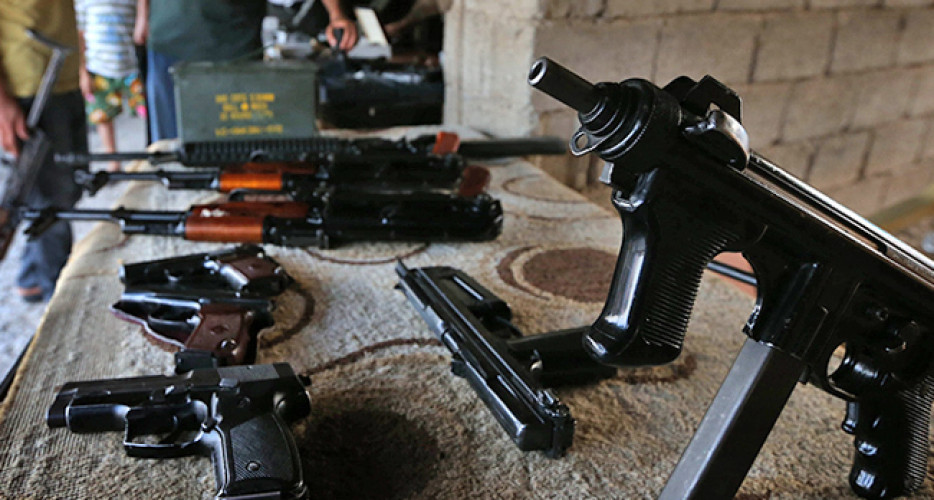
Peregraf - Farman Hamadamin
The Kurdistan Regional Government (KRG) Ministry of Interior eyes on the silence of all kinds of common guns among people, from RPG to MK47, and even pistols. Later, they will shut down the local markets’ arms sale. The move is to eradicate crime and murder, which the Human Rights Commission notes to increase with the presence of arms.
The ministry published a seven-points statement, with the decree that it confronts gun ownership until August 2019, after years of media campaign against the phenomenon.
In late 2018, Peregraf detailed the phenomenon of arms sale in local markets, and its impact on the increase in crime. Several campaigns were launched later, in Chamchamal and through the Independent Human Rights Commission.
The decree is to seize unregistered guns, which has been scorned on social media. In the first point, the statement notes the eradication of all weapons by civilians, except for pistols and MK47.
However, people noted, most civilians carry those types, and they are used to commit most of the common crimes, not medium or heavy arms, like RPG, mortars or PK machine gun.
The director-general at the Ministry of Interior, Sami Jalal, explained, “In the fourth point of the decision, a timeframe of six months has been allocated for registering pistols and MK47, and handover of heavier weapons.”
In the second phase, he said, the weapons which are registered will be dealt with through the law number 16, and the rest will be seized, “This is a plan of the ministry and it cannot be implemented only in one phase.”
The first phase, he said, is to remove the weapons, and the second phase is to either close the local markets for guns, or to regulate them according to the law.
Local gun markets exist, although government institutions consider them to be illegal.
The law number 16 of 1993 is to register and carry guns, not to trade with them.
In 2015, the Ministry of Interior started to regulate the issue. The authority of registering pistols was given to the local administrations, but MK47 could only be authorized by the Minister of Interior himself.
Ziya Petros, the director of the Independent Human Rights Commission at Kurdistan Region criticized the way the statement is arranged, “It might convey the wrong message, as the first point legitimizes the ownership of pistols and MK47, although the fourth point clarifies it more.”
He said the statement is still positive, “We see it as an achievement.” However, he warned, it should be implemented in practice.
The ministry said in the statement that an office will be opened to collect the seized weaponry, and instructs that the heavy weaponry should be directly given to the Ministry of Peshmerga.
Petros’s commission started a 15-day campaign against gun ownership prior to the decision by the ministry, “Committing crimes has become a phenomenon”.
Petros criticized the local gun markets, saying most of the crimes are committed with unregistered guns, “This is due to the freedom of gun markets.”
Between June 2016 and June 2017, around 222 people were killed. Guns are a major factor. Ministry of Interior says while they have registered 10 thousand guns, crimes have not been committed by using them since 2015. He said such statistics was taken directly from court inquires.
He said while there is no data concerning heavy weaponry, “Three divisions have surrendered to the Islamic State (IS), with heavy weaponry, and that’s a proof that heavy weaponry could be found at people’s houses.”
Gun control is a controversial issue in the Kurdistan Region, especially when a related incident happens. Activists and NGOs focus on the matter as a priority.
The Head of the Rights Commission believes that KRG should introduce tougher measures against those who carry unregistered guns. Local markets for guns should also be closed down. He also believes that armed forces should be unified and nationalized, as a way to control guns. The political parties should also take into account that the phenomenon can cause them harm, “If there is a rule of law, judges can take firm legal measures. Many people would voluntarily leave their weapons,” Ziya Petros said.